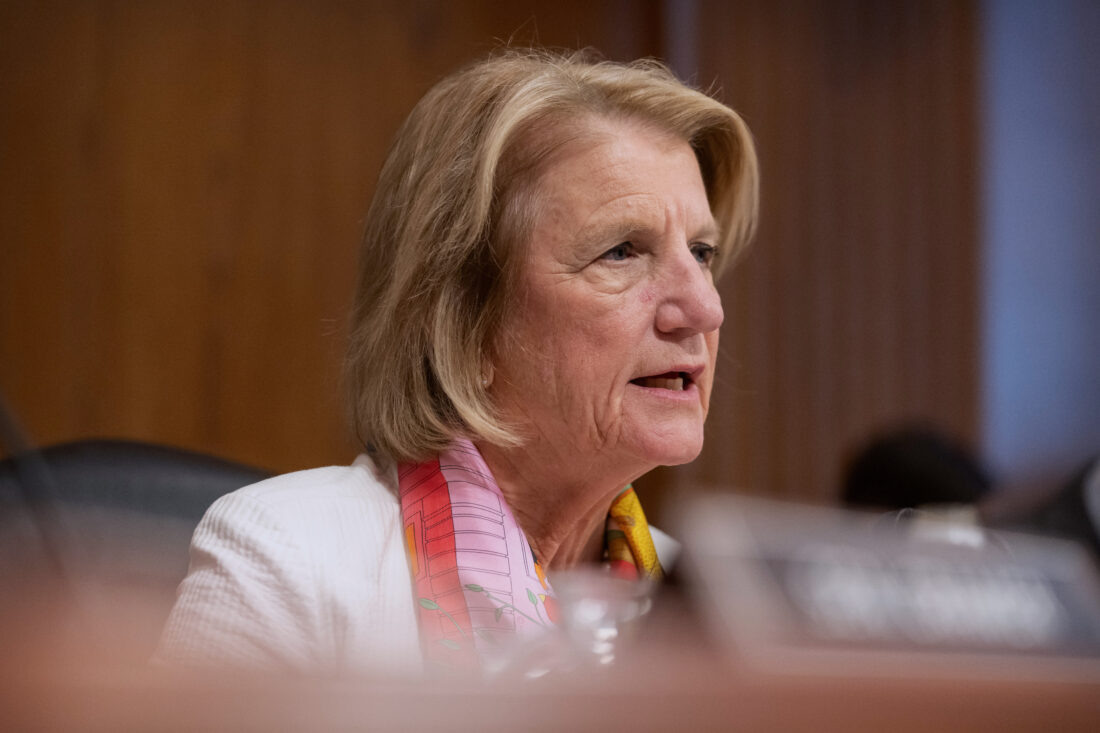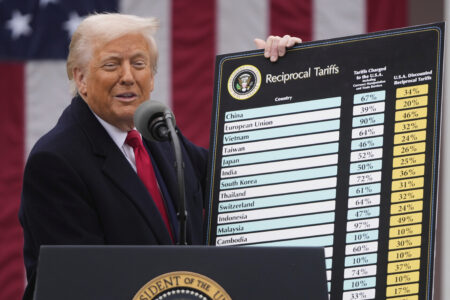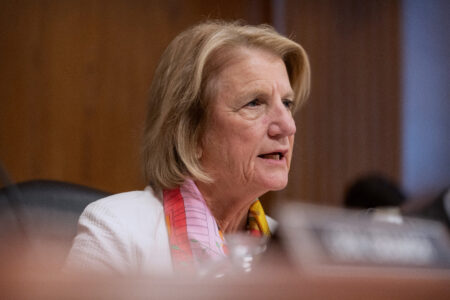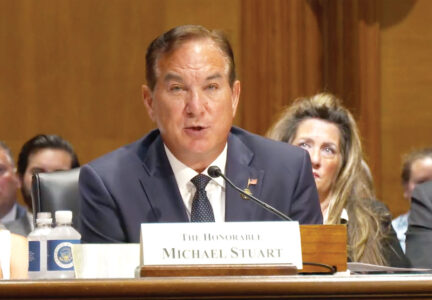Capito working on the next round of permitting reform

Sen. Shelley Moore Capito, R-W.Va., speaks during a hearing of the Senate Committee on Environment and Public Works on Capitol Hill, Wednesday, July 16, 2025, in Washington. (AP Photo/Mark Schiefelbein)
CHARLESTON — Permitting reform is once again a major focus of U.S. Sen. Shelley Moore Capito, and she believes that lawmakers can get a package to the desk of President Donald Trump by the end of the year. Speaking to West Virginia reporters on a conference call Thursday afternoon, Capito talked about her speech on the floor of the U.S. Senate Wednesday advocating for permitting reform to speed up energy, transportation, and infrastructure projects. “I thought it was time to start talking more aggressively about the need for permitting reform,” said Capito, R-W.Va. “If we’re going to have data centers in need of more energy, we need to be able to have a permitting structure that really works.” Capito, the chairwoman of the Senate Environment and Public Works (EPW) Committee, is working with EPW ranking Democratic member Sheldon Whitehouse, D-R.I., on a permitting reform package that can be considered by the full Senate and U.S. House of Representatives sometime in the next five months. “We both, as chair and ranking member of the Environment and Public Works Committee, wanted to put out a united front as a unit,” Capito said. “I think that is good, and that would be great for West Virginia. Hopefully, we can do something by the end of the year.” The EPW Committee began work in February on permitting reform, taking testimony in committee and keeping the record open for 30 days to allow stakeholder to submit further testimony and comments. According to Capito, her committee received 107 submissions on behalf of 146 organizations, as well as 854 individual requests providing input on how to improve federal permitting processes. Congress has been tackling the topic of permitting reform for a number of years, either through individual bills or by including permitting reform provisions in continuing resolutions to keep the federal government funded. The most recent permitting reform effort, led last year by former U.S. Sen. Joe Manchin, failed after negotiations to include it in another continuing resolution failed. Manchin, the former chairman of the Senate Energy and Natural Resources Committee, worked with then-ranking Republican committee member John Barrasso of Wyoming on a package called the Energy Permitting Reform Act. The act would have shortened the timeline for judicial review of energy and mineral permitting projects while accelerating federal decision-making for leasing of energy projects on federal lands. It would have allowed for at least one lease sale for offshore wind and offshore oil and gas projects per year from 2025 to 2029 subject to limitations. Among other things, the proposal would have reformed current backstop authority for interstate electric transmission lines and required interregional planning. It would have limited how electric companies allocate expenses to customers for transmission line projects, as well as other items to speed up transmission projects. “We’ve been talking about this for years,” Capito conceded. “The Manchin/Barrasso bill almost passed at the end of last year. They had a lot of permitting for transmission and some easing of some of the judicial reviews so you can’t keep going to court back-and-forth and back-and-forth.” But Capito said she believes this is the year to push for a large, comprehensive permitting reform package that can appeal to different kinds of projects. “It’s not just new pipelines or natural gas. It’s solar, it’s wind, it’s broadband, it’s housing development, it’s transportation projects,” Capito said. “I think what we’re seeing here is a convergence of clean energy folks and people like me who are all-of-the-above meeting together with an urgency, and I think that’s why I think we have a better shot at this year than we’ve had over the last few years.” Over in the U.S. House of Representatives, House Natural Resources Committee Chairman Bruce Westerman, R-Ark., and U.S. Rep. Jared Golden, D-Maine, introduced the Standardizing Permitting and Expediting Economic Development (SPEED) Act. That bill would make reforms to the National Environmental Policy Act (NEPA) to streamline permitting processes, shorten timelines for permit approvals, and limit judicial review. “A lot of times here on Capitol Hill…things have to simmer and cook for a couple years before we really get to the meat of the matter. I feel like this is where we are with permitting,” Capito said. “The House just put out a bipartisan bill. That’s a good sign that there’s bipartisan support in the House and we have to have a bipartisan process.” Steven Allen Adams can be reached at sadams@newsandsentinel.com.





